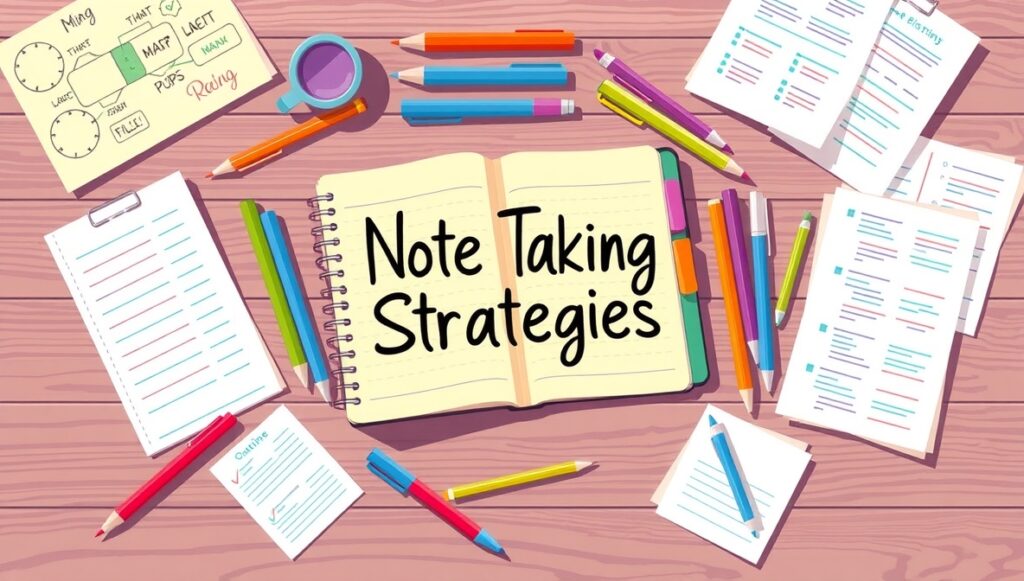Science can seem intimidating, but with the right approach and dedication, you can master it independently and achieve excellent grades. Whether you’re studying physics, chemistry, biology, or any combination of these subjects, self-directed learning can be just as effective as expensive coaching classes—sometimes even more so. This comprehensive guide will equip you with proven strategies to excel in science through smart study techniques, resourceful learning, and consistent practice.

Understanding the Science Learning Landscape
Before diving into specific strategies, it’s crucial to understand what makes science different from other subjects. Science is inherently logical and interconnected, with concepts building upon one another. Unlike subjects that rely heavily on memorization, science requires deep understanding, application, and problem-solving skills. This characteristic actually works in your favor when studying independently, as you can take the time to truly grasp concepts rather than rushing through a predetermined curriculum.
The key to success lies in recognizing that science is not about memorizing formulas and facts, but about understanding principles and learning to apply them in various situations. This mindset shift is fundamental to your success as a self-learner.
Building a Strong Foundation
Start with the Basics
Every science subject has fundamental concepts that serve as building blocks for more complex topics. In physics, these might include basic mechanics, forces, and energy. In chemistry, understanding atomic structure and chemical bonding is essential. For biology, cell structure and function form the foundation. Identify these core concepts in your syllabus and ensure you understand them thoroughly before moving forward.
Don’t be tempted to skip what seems “easy” or “basic.” Many students struggle with advanced topics simply because they have gaps in their foundational knowledge. Spend extra time on these fundamentals—it’s an investment that will pay dividends throughout your studies.
Master the Language of Science
Each science subject has its own vocabulary and symbolic language. In chemistry, you need to be comfortable with chemical formulas and equations. Physics requires fluency with mathematical notation and units. Biology involves understanding scientific nomenclature and classification systems. Create glossaries for each subject and review them regularly. When you encounter new terms, don’t just memorize definitions—understand the concepts behind them and how they relate to what you already know.
Effective Study Strategies
The Three-Phase Learning Method
Implement a three-phase approach for each topic: Preview, Study, and Review.
Preview Phase: Before diving deep into a topic, spend 10-15 minutes skimming through the material. Read headings, look at diagrams, and identify key terms. This gives your brain a framework to organize the information you’re about to learn.
Study Phase: This is where you do the heavy lifting. Read actively, taking notes and asking questions. Don’t just read passively—engage with the material. Explain concepts aloud to yourself, draw diagrams, and make connections to previously learned material.
Review Phase: Within 24 hours of studying, review what you learned. This doesn’t mean re-reading everything, but rather testing your understanding through practice problems or by explaining concepts without looking at your notes.
Active Learning Techniques
Transform passive reading into active learning through various techniques:
The Feynman Technique: Choose a concept and explain it in simple terms as if teaching a child. If you can’t explain it simply, you don’t understand it well enough. This technique helps identify gaps in your knowledge and reinforces learning.
Concept Mapping: Create visual representations of how different concepts relate to each other. This is particularly effective for biology topics like ecosystems or chemistry topics like reaction mechanisms.
Problem-Solving Practice: Science is learned by doing. Solve problems regularly, starting with simple examples and gradually increasing complexity. Don’t just memorize solution methods—understand the reasoning behind each step.
Note-Taking Strategies
Develop an effective note-taking system that works for you:
The Cornell Method: Divide your page into three sections: notes, cues, and summary. This structure helps organize information and facilitates review.

Visual Notes: Incorporate diagrams, flowcharts, and mind maps. Science concepts often have visual components that are better understood through drawings than words alone.
Question-Based Notes: As you study, write down questions that arise. This keeps you engaged and helps identify areas that need more attention.
Utilizing Free and Low-Cost Resources
Online Educational Platforms
Take advantage of high-quality free educational content available online. Khan Academy offers comprehensive courses in physics, chemistry, and biology with interactive exercises and progress tracking. Coursera and edX provide access to university-level courses, many of which are free to audit.
YouTube has become an invaluable educational resource. Channels like CrashCourse, Professor Dave Explains, and Bozeman Science offer engaging video lessons that can supplement your textbook learning. Create playlists for different topics to organize your video resources.
Digital Textbooks and Resources
Many universities make their lecture notes and materials freely available online. MIT OpenCourseWare, for example, provides complete course materials for numerous science subjects. These resources are often more advanced than high school level, but they can provide deeper insights into topics you’re studying.
Google Scholar can help you access scientific papers and research articles. While these may be advanced, reading simplified summaries of recent research can make science more relevant and interesting.
Mobile Apps and Tools
Leverage technology to make studying more convenient and effective. Apps like Anki use spaced repetition to help you memorize key facts and formulas. PhET Interactive Simulations allows you to experiment with physics and chemistry concepts virtually. Periodic table apps can help chemistry students learn element properties and trends.
Creating Your Own Learning Environment
Establishing a Study Schedule
Consistency is key to self-directed learning. Create a realistic study schedule that allocates time to each science subject based on your needs and interests. Include time for new material, practice problems, and review sessions.
Use the Pomodoro Technique: study for 25 minutes, then take a 5-minute break. This helps maintain focus and prevents mental fatigue. After four cycles, take a longer 15-30 minute break.
Setting Up Your Study Space
Create a dedicated study environment free from distractions. Good lighting, comfortable seating, and all necessary materials within reach are essential. Consider having separate spaces or setups for different types of activities—reading, problem-solving, and hands-on experiments.
Tracking Progress
Keep a learning journal to track your progress and identify patterns in your learning. Note which topics you find challenging, which study methods work best for you, and how long different types of tasks take. This self-awareness will help you optimize your study approach over time.
Practical Application and Experimentation
Home Experiments
Science is an experimental subject, and hands-on experience reinforces theoretical learning. Many simple experiments can be performed safely at home with common materials. Growing crystals, building simple circuits, or observing plant growth can make abstract concepts concrete.
Always prioritize safety when conducting experiments. Research proper procedures and never attempt experiments involving dangerous chemicals or equipment without proper supervision.
Real-World Connections
Look for science in everyday life. Understanding how a microwave works reinforces electromagnetic wave concepts. Observing weather patterns connects to atmospheric science. Cooking involves numerous chemical reactions. These connections make learning more meaningful and memorable.

Virtual Labs
When physical experiments aren’t possible, virtual labs can provide valuable experience. Many educational websites offer interactive simulations that allow you to manipulate variables and observe results, giving you a feel for experimental design and data analysis.
Exam Preparation Strategies
Understanding Question Types
Familiarize yourself with the types of questions commonly asked in your exams. Science exams typically include multiple-choice questions, short-answer problems, and longer analytical questions. Each type requires different preparation strategies.
For multiple-choice questions, focus on understanding concepts thoroughly to avoid being misled by distractors. Short-answer problems require quick recall and application of formulas. Longer questions test your ability to analyze complex situations and apply multiple concepts.
Practice with Past Papers
Past examination papers are invaluable resources for understanding exam format and difficulty level. Time yourself while solving these papers to improve your pace and endurance. Analyze your mistakes carefully—they often reveal gaps in understanding or common misconceptions.
Memory Techniques for Key Information
While understanding is more important than memorization, some information must be memorized. Use mnemonic devices for remembering formulas, constants, and sequences. Create acronyms, rhymes, or visual associations to help recall important information during exams.
Staying Motivated and Overcoming Challenges
Setting Realistic Goals
Break large goals into smaller, achievable milestones. Instead of “master chemistry,” set specific goals like “understand acid-base reactions” or “solve 20 stoichiometry problems.” Celebrate these small victories to maintain motivation.
Finding Study Partners
Even when studying independently, connecting with peers can be beneficial. Form study groups with classmates or find online communities of students studying similar subjects. Teaching others helps reinforce your own learning, and different perspectives can illuminate difficult concepts.
Dealing with Difficult Topics
Every student encounters topics that seem particularly challenging. When you hit a wall, try approaching the material from different angles. Use multiple resources, try different explanation methods, or take a break and return with fresh eyes. Remember that struggling with difficult concepts is normal and part of the learning process.
Maintaining Work-Life Balance
Intense study periods should be balanced with adequate rest and recreation. Physical exercise, proper nutrition, and sufficient sleep are crucial for optimal brain function. Schedule breaks and leisure activities to prevent burnout.
Building Long-Term Success Habits
Developing Scientific Thinking
Beyond specific subject knowledge, cultivate scientific thinking skills. Learn to question assumptions, analyze evidence critically, and draw logical conclusions. These skills will serve you well beyond your current studies.
Staying Current
Science is constantly evolving. Follow reputable science news sources, read popular science magazines, and stay informed about developments in fields that interest you. This broader perspective can enrich your understanding and maintain your enthusiasm for science.
Planning for the Future
Consider how your science studies fit into your longer-term goals. Whether you’re planning a career in science or simply want to be a scientifically literate citizen, maintaining this perspective can provide motivation during challenging periods.
Conclusion
Achieving high marks in science without coaching is entirely possible with the right approach, dedication, and resources. The key lies in understanding that effective learning is about quality, not just quantity of study time. By building strong foundations, using active learning techniques, leveraging available resources, and maintaining consistent effort, you can master scientific concepts and excel in your examinations.
Remember that self-directed learning offers unique advantages: you can proceed at your own pace, focus on areas where you need more help, and develop independent learning skills that will benefit you throughout your life. The discipline and self-motivation you develop through this process are valuable skills that extend far beyond science education.
Success in science self-study requires patience, persistence, and a genuine curiosity about how the world works. Embrace the challenges, celebrate your progress, and remember that every expert was once a beginner. With consistent effort and the right strategies, you can achieve your academic goals and develop a deep appreciation for the wonders of science.



